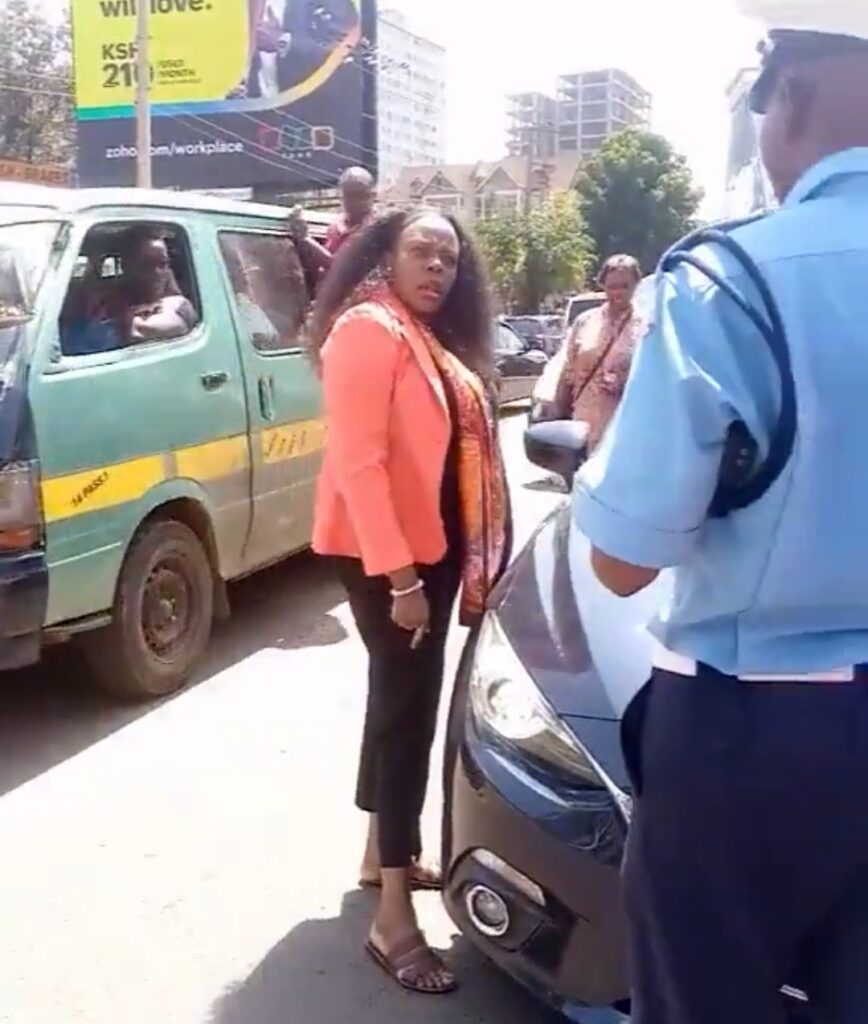A recent viral video from Nairobi has stirred public interest and debate after a woman, caught by traffic police for a violation, insisted that the officers call Deputy President Rigathi Gachagua.
The woman’s plea to involve Gachagua underscores the prevalent belief in leveraging political connections to evade legal consequences, highlighting issues of privilege and influence in Kenya’s law enforcement system. The incident reflects broader societal frustrations with perceived inequalities in the application of the law.
Deputy President Rigathi Gachagua has been a prominent figure in various public discussions recently. He has been actively involved in addressing community concerns and grievances.
For instance, he visited Kapsabet Boys High School following a tragic accident that claimed the lives of a teacher and a student. During his visit, Gachagua promised to replace the school’s bus that was destroyed in the accident, demonstrating the government’s commitment to supporting affected communities.
Additionally, Gachagua has faced public criticism and frustration from different quarters, including police officers who feel neglected and unrecognized despite their service. Such incidents highlight the complex dynamics between public officials and citizens, where promises of support and actual implementation often diverge, leading to public outcry and demands for accountability.
This episode with the woman and the traffic police vividly illustrates the ongoing challenges in Kenya’s political and social landscape, where the intersection of power, privilege, and everyday governance continues to be a contentious issue


